#postern of fate
Text
And that should be the last poll about my Christie's works' series... but hopefully not my last about Christie stuff.
Previous polls in this series :
- Poll 1 : popular titles
- Poll 2
- Poll 3
- Poll 4
- Poll 5
- Poll 6
#polls#agatha christie#crime fiction#poirot investigates#parker pyne investigates#the labours of hercules#passenger to frankfurt#a caribbean mystery#postern of fate#the mysterious mr quin#they do it with mirrors#poirot's early cases#witness for the prosecution
12 notes
·
View notes
Text
"A future being prepared to be controlled and run by one particular political figure in this country. A man with a certain reputation and making more converts and followers every day. The Confidence Trick in action once again. Man of Great Integrity—Lover of Peace. Not Fascism—oh no! Just something that looks like Fascism."
From Postern Of Fate by Agatha Christie
2 notes
·
View notes
Text
Cooking With Christie: Speedy Dumpling Soup!
Inspiration: Looking for a quick weeknight dinner, I perused The Pioneer Woman’s Super Easy! cookbook and found a Speedy Dumpling Soup.
And as advertised, it is quick and simple.
Now. Since I’ve been working on mastering ramen recipes — instead of sticking with the recipe, I doctored the vegetable broth using Let’s Make Ramen‘s quick broth recipe. Then, because I can’t have broccoli (due to…
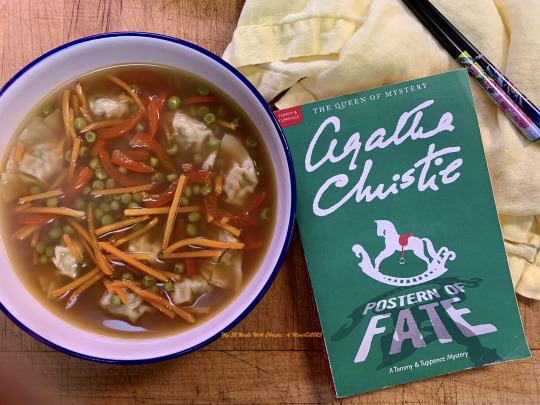
View On WordPress
#agatha Christie#book#book cover#book photo#book pic#Cooking With Christie#my 52 weeks with christie#mystery#pioneer woman super easy#postern of fate#Rhee drummond
3 notes
·
View notes
Text
Postern of Fate - Book Review
~Agatha Christie
⭐⭐⭐
Rating: 2.5 out of 5.
Published: 1973Pages: 400Genre: Mystery
Summary: Tuppence and Tommy Beresford retires and moves to an old place called the Laurels. In the house, they found a wide collection of old books. Tuppence, who was delighted to see these books, found a secret message in one of them.
Mary Jordan did not die naturally. It was one of us. I think I know…
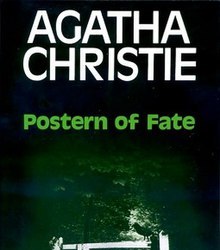
View On WordPress
#Agatha Christie#Blogchattera2z#book review#books#fiction#Indianbookblogger#mystery#Postern of Fate#suspense#thriller
0 notes
Text
Reading The Rose and The Yew Tree by Mary Westmacott, aka Agatha Christie, and it's so good to be reading a book by her for the first time, not an experience I get to have now as I've read almost all her books.
Also I can totally tell it's her, just not a mystery novel. As I aways say, she was a good writer, she just happened to excel at mysteries.
#agatha christie#mary westmacott#got all those 4 westmacotts i'd not read at once on my kindle and just picked the one that was nearest the top in the library list#otherwise no meaning behind going for that one#have read giant's bread and unfinished portrait already so now i want to finish the rest#idk what to do with passenger to frankfurt and postern of fate. i know those are really bad#i have passenger to frankfurt. started it like 18 yrs ago and never got past the second chapter#i suppose i will have to suffer through it for completion's sake#reading#books#mypost
1 note
·
View note
Text

Agatha Christie Books in Order.
Hercule Poirot Books
Hercule Poirot Collections
Miss Marple Books
Miss Marple Collections
Tommy and Tuppence Books
Tommy and Tuppence Collections
Superintendent Battle Books
Standalone Novels
Short Story Collections
Non-Fiction Books
Agatha Christie Hercule Poirot books in order
Here are the names of Agatha Christie’s Hercule Poirot books in order. It will help you start with your reading while ensuring the best experience.
The Mysterious Affair at Styles (1920)
The Murder on the Links (1923)
The Murder of Roger Ackroyd (1926)
The Big Four (1927)
The Mystery of the Blue Train (1928)
Peril at End House (1932)
Lord Edgware Dies (1933)
Murder on the Orient Express (1934)
Three Act Tragedy (1935)
Death in the Clouds (1935)
The A.B.C. Murders (1936)
Murder in Mesopotamia (1936)
Cards on the Table (1936)
Dumb Witness (1937)
Death on the Nile (1937)
Appointment with Death (1938)
Hercule Poirot’s Christmas (1938)
One, Two, Buckle My Shoe (1940)
Sad Cypress (1940)
Evil Under the Sun (1941)
Five Little Pigs (1942)
The Hollow (1946)
Taken at the Flood (1948)
Mrs. McGinty’s Dead (1952)
After the Funeral (1953)
Hickory Dickory Dock (1955)
Dead Man’s Folly (1956)
Cat Among the Pigeons (1959)
The Clocks (1963)
Third Girl (1966)
Hallowe’en Party (1969)
Elephants Can Remember (1972)
Curtain (1975)
The Monogram Murders (2014)
Agatha Christie Hercule Poirot Collections in Order
Poirot Investigates (1924)
Murder in the Mews (1937)
The Labours of Hercules (1947)
Poirot’s Early Cases (1974)
Agatha Christie Miss Marple Books in Order
Here is the list of Agatha Christie’s books in order based on their publication date.
The Murder at the Vicarage (1930)
The Body in the Library (1942)
The Moving Finger (1942)
A Murder is Announced (1950)
They Do It with Mirrors (1952)
A Pocket Full of Rye (1953)
4:50 From Paddington (1957)
The Mirror Crack’d (1962)
A Caribbean Mystery (1964)
At Bertram’s Hotel (1965)
Nemesis (1971)
Sleeping Murder (1976)
Agatha Christie Miss Marple Collection in Order
The Thirteen Problems (1932)
Miss Marple’s Final Cases (1979)
Agatha Christie’s Tommy and Tuppence Books in Order
Here’s the list of Agatha Christie Tommy and Tuppence Books in Order
The Secret Adversary (1922)
N or M? (1941)
By the Pricking of My Thumbs (1968)
Postern of Fate (1973)
Agatha Christie’s Tommy and Tuppence Collections in Order
Partners in Crime (1929)
Agatha Christie’s Superintendent Battle Books in Order
Here’s the list of Agatha Christie Superintendent Battle Books in Order
The Secret of Chimneys (1925)
The Seven Dials Mystery (1929)
Cards on the Table (1936)
Murder is Easy (1939)
Towards Zero (1944)
Agatha Christie’s Standalone Novels in Order
Here’s the list of Agatha Christie Standalone Novels in Order
The Man in the Brown Suit (1924)
Giant’s Bread (1930)
The Sittaford Mystery (1931)
Unfinished Portrait (1934)
Why Didn’t They Ask Evans? (1934)
And Then There Were None (1939)
Absent in the Spring (1944)
Death Comes as the End (1944)
Sparkling Cyanide (1945)
The Rose and the Yew Tree (1948)
Crooked House (1949)
They Came to Baghdad (1951)
A Daughter’s a Daughter (1952)
Destination Unknown (1954)
The Burden (1956)
Ordeal by Innocence (1958)
The Pale Horse (1961)
Endless Night (1967)
13 at Dinner (1969)
Passenger to Frankfurt (1970)
The Murder at Hazelmoor (1984)
Agatha Christie’s Short Story Collections in Order
Here’s the list of Agatha Christie Short Story Collections in Order
The Mysterious Mr. Quin (1930)
The Hound of Death (1933)
The Listerdale Mystery (1934)
Parker Pyne Investigates (1934)
The Regetta Mystery and Other Stories (1939)
The Witness for the Prosecution and Other Stories (1948)
Three Blind Mice and Other Stories (1950)
The Under Dog and Other Stories (1951)
The Adventure of the Christmas Pudding (1960)
Double Sin and Other Stories (1961)
Star Over Bethlehem and Other Stories (1965)
The Golden Ball and Other Stories (1974)
The problem at Pollensa Bay and Other Stories (1991)
The Harlequin Tea Set (1997)
While the Light Lasts and Other Stories (1997)
Agatha Christie’s Non-Fiction Books in Order
Here’s the list of Agatha Christie Non-Fiction Books in Order
Come, Tell Me How You Live (1946)
Agatha Christie: An Autobiography (1977)
Top 10 Agatha Christie Books to Read
Given the number of books in the Agatha Christie series, readers generally hesitate to begin. Further, to understand the series well, one needs to read Agatha Christie’s novels in order. To ease things, the readers generally look for the best novels or books to read them directly and avoid all the hassle. So here are the top 10 Agatha Christie novels that will offer you the best mystery story reading experience.
#agatha christie#poirot#hercule poirot#miss marple#tommy and tuppence#superintendent battle#literature#english literature#books#classics#crime novles#1920s#1930s#1940s#1950s#1960s#1970s#vintage
75 notes
·
View notes
Text
Weekly Writing and Reading Update
Hello, I am worn tf out from my lil field trip yesterday, it will be an afternoon spent reading and writing in bed. and ordering in dinner. Bliss.
(I think it should be a quiet week at work and GOOD I am READY. I don’t work very hard anyway, I just want a chill week in general.)
Writing
A Common or Garden Romance? I updated this past week, and I’ve got the next chapter written, so that’ll probably go up...later today? Tomorrow? Something like that. I am having a lot of fun writing was passes for my version of a slow burn.
The Perils of Modern Architecture A gift! Man, I love writing Bike Girls.
I also really want to fill some of the Miss Fell prompts, but that might happen more this week -- I would *like* to write today, but I’ll see how much energy I have.
(and OF COURSE I have an idea for a Castle Terra AU bc I heard you liked AUs so I got an AU of your AU, but it’s very much a one-shot so I think I might save it for Whumptober, if I can find a good prompt to work with? Now that I’ve said that, I assume I’ll write it in one go some night this week.)
Reading
I read Postern of Fate and wish I hadn’t. (It’s...sad, actually. You can tell Christie was at the end of her life when she wrote it, and is really failing. It’s bad.)
4 notes
·
View notes
Text
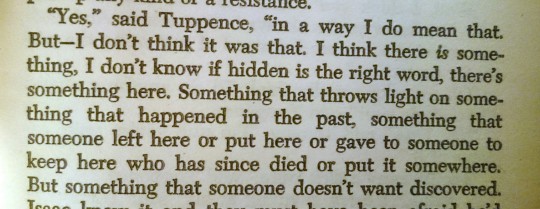
Postern of Fate, AKA one of the books that made academics wonder if Agatha Christe had Alzheimer's.
"They found that the vocabulary size of the creator of Poirot and Miss Marple decreased sharply as she neared the end of her life, by 15 to 30%, while repetition of phrases and indefinite word usage (something, thing, anything) in her novels increased significantly."
(Source)
Also proof that publishers will sell anything as long as there's a famous name attached.
1 note
·
View note
Text
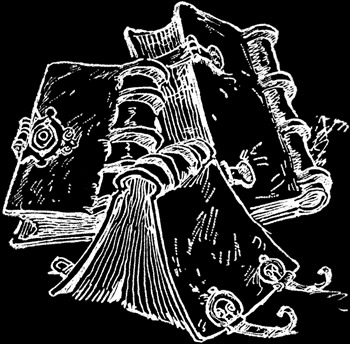
Trotz Kino und neuen Medien wird natürlich immer auch noch gelesen.
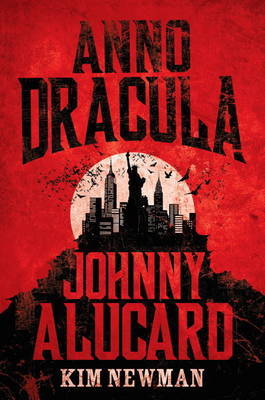
Der verstorbene Graf Dracula kehrt zurück, in Gestalt eines verführerischen jungen Mannes, der Andy Warhol im Studio 54 den Kopf verdreht, und sich anschließend nach Hollywood begibt, um das Vampirfilmgenre (Ha! Kino schon wieder!) zu beleben. Er wirkte einst bei Coppolas legendärer Dracula-Verfilmung mit Marlon Brando mit. Orson Welles bricht seine spektakuläre Neuverfilmung jedoch schon nach einem Drehtag ab, als er seine wahren Beweggründe erfährt.
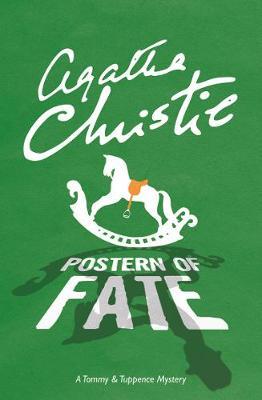
Postern of Fate ist der letzte Roman, den Agatha Christie geschrieben hat, und wird gemeinhin als Hinweis darauf gedeutet, daß sie im Alter an Alzheimer litt. Tommy und Tuppence sind hier allerdings auch schon recht alt, und vergessen einiges, so daß es trotz gewisser Irritationen stilistisch nicht völlig unangemessen ist.
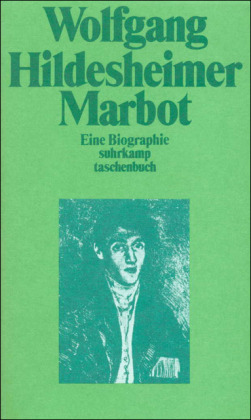
Herr Hildesheimer ist diesmal nicht so lustig, und erfindet eine große, wissenschaftliche Biographie. Marbot schläft mit seiner Mutter, haßt seinen Vater und erfindet die psychologische Kunstbetrachtung.
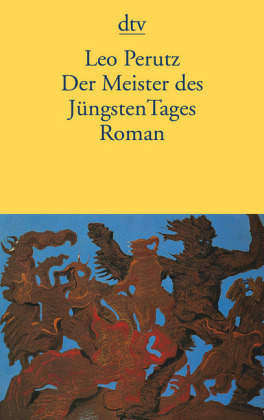
Ein wunderbares Gruselstückchen von Leo Perutz. Ein altes Buch treibt reihenweise Leute in den Selbstmord. Huuh!
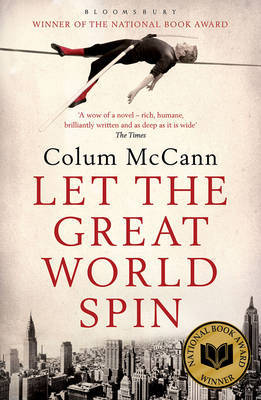
Etwas überambitionierter, aber unterhaltsamer” Die-ganze Welt-an-einem-Tag-in-einer-Stadt-erklärt”-Versuch: Die Stadt ist New York, und der Tag der, an dem ein Seiltänzer illegal zwischen den Türmen des Word-Trade-Center auftritt. Sehr bedeutungsschwanger, aber schon clever.
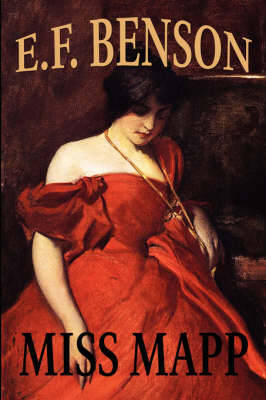
Im malereischen und bezaubernden Tilling hingegen, wäre die Welt noch in Ordnung, würde die noch alleinherrschende Miss Mapp nur nicht immer von sich auf andere schließen, und deshalb von allen das Schlechteste annehmen. Völlig zu recht natürlich. Wir wissen aber natürlich, daß im nächsten Band die feingeistige, lebensbejahende Lucia auftauchen wird, um sie in ihre Schranken zu weisen, und gönnen ihr deshalb auch einen Soloauftritt.
#Buch gelesen#Kim Newman#Johnny Alucard#Vampire#Anno Dracula#Agatha Christie#Postern of Fate#Wolfgang Hildesheimer#Marbot#Leo Perutz#Der Meister des jüngsten Tages#Colum McCann#Let the Great World Spin#E. F. Benson#Miss Mapp
1 note
·
View note
Text
Postern of Fate by Agatha Christie - Book Review
Postern of Fate by Agatha Christie – Book Review
You know you’re reading the worst Christie novel ever when you start wishing you were reading The Big Four or Passenger to Frankfurt instead, which I previously regarded as her absolute worst mysteries. It was hard to imagine that any other book of hers could usurp the top spot on the rubbish heap, but this messy, confused and terminally dull novel managed it.
(more…)
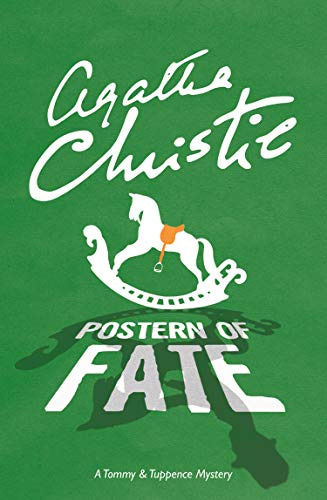
View On WordPress
#Agatha Christie#book#books#crime#detective#fiction#mystery#opinion#Postern of Fate#reading#review#Tommy and Tuppence
0 notes
Text
Somebody told me it was some silly mistake the cook made. Brought foxglove leaves into the house by mistake for spinach—or for lettuce, perhaps. No, I think that was someone else. Someone told me it was deadly nightshade but I don’t believe that for a moment because, I mean, everyone knows about deadly nightshade, don’t they, and anyway that’s berries. Well, I think this was foxglove leaves brought in from the garden by mistake.
From Postern Of Fate by Agatha Christie
I have foxglove plants and yes they're digitalis but they're not going to be mistaken for spinach - the texture is all wrong. (I gather this is Agatha letting us know a rumor, not what really happened.)
3 notes
·
View notes
Text
Cooking With Christie!
This Week’s Recipe: Quick Mexican Rice
Inspiration: I need to admit to a very guilty gastronomical pleasure — I enjoy doctoring Rice a Roni’s Spanish and Mexican rice. Starting with cooking the base box contents in salt-free stock (because Rice a Roni contains enough season all on its own) for an additional flavor boost. I then move on to the extras like cheese, chicken, serrano & bell peppers,…
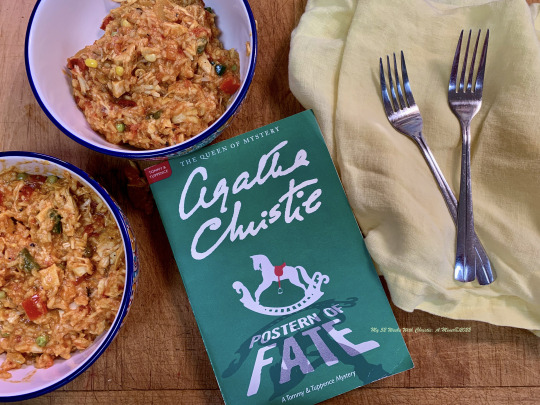
View On WordPress
#agatha Christie#book#book cover#book photo#book pic#Cooking With Christie#mexican rice#my 52 weeks with christie#postern of fate#super easy! cookbook#the pioneer woman#tommy and tuppence
6 notes
·
View notes
Photo
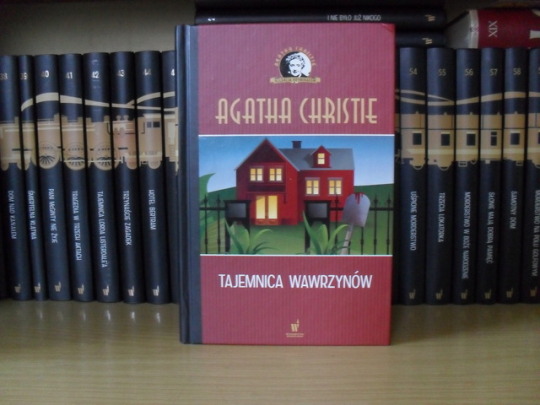
8 notes
·
View notes
Photo
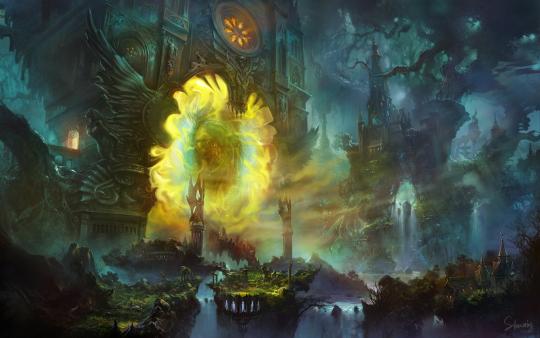
Postern of Fate by artist li shuxing via ImaginaryPortals
24 notes
·
View notes
Text
Gnostic inspirations in Przybyszewska’s works
At the highest point of her intellectual life, Stanisława Przybyszewska spent over 12 hours each day simply on writing her own works, continously, and with maniacal care, educating herself on absolutely everything (she was constantly looking for fields in which she might be a natural genius) and she rarely did anything else at all, which included things like earning a wage or sweeping her own floors. The effect of such existence was of course that she was severely depressed, but also thoroughly educated. It means that traces of whatever matter from history or philosophy can be spotted in her works, are most likely intentional and put there exactly with the hopes of showing her erudice.
One of such matters was gnosticism. Gnosticism is a set of beliefs which put emphasis on obtaining liberation from this life through gnosis (knowledge) and cast aside all that is not of the mind – so not only the flesh, but also the spirit. Without going into details of some specific gnostic rite it is simpler to say that gnostics value gnosis higher than any of their base beliefs and teachings (in Europe gnostics are mostly mentioned in relation to early christianity, Cathars are an example of this). Then the contrast one can find within religion (for example sin and liberation from it) is replaced with earthly illusion and gnosis, which frees one from the illusion and guarantees a higher level of life, of sorts (in gnostic beliefs, our presence on Earth is not linear, leading from birth, through life and death to afterlife, but resembles more of a ladder, with each rung leading closer to obtaining total knowledge, and simultenously losing all that tethers one to earthly illusions.
In literature, strong contrasts are a good indication we can look into it to spot gnostic inspirations or at the very least make a strong case they could be there, even if unintentional. In Przybyszewska's case, however, they are all the more probable, for I vaguely recall she was well aware of the presence of these beliefs and everything she wrote on the nature of genius points in the same direction, too. She held these beliefs in her own, private set of core values, and there isn't any better place for her to show them to us but through her works. She presented us with an utopian vision of mental progress in her plays, while in her prose works, she focused on the darker side of the same things.
The axis of conflict in gnosticism is between the mind and the spirit. Robespierre is without a doubt a man of the mind much more so than of the spirit, and all the important figures surrouding him are more on the spiritual side of things (with Camille being the most prominent in this regard). Maxime has achieved the gnosis, the crown that will burn [his] brains right through.Before it happens, though, he is elevated onto another plane of understanding, a place where no other person can reach him, or even understand him:

Danton, of course, is lying.
(There is, sadly, no French translation of Thermidor; on another note, it took me this long to realize the French decided to change the person's tag from Camille to Desmoulines, which is suprising in the best sense of the word).
Robspierre is clearly constructed to be a genius, standing above everybody else and thus bearing greater responsibility, something which demands of him more than it does of others. Madness which he suspects within himself at the end is only a threat because it potentially leads to commiting mistakes, and a mistake is an unforgivable offence when it is committed by the one who ought to know better. Mistakes by a hand of another – for example Camille – are a different story altogether, for the majority of people not only don't achieve gnosis, but even cannot achieve it, their mental state isn't developed enough for them to grasp at the higher concepts. I think this is one of the reasons why Saint-Just's words: It is not madness, it's despair, are actually calming Robespierre down. Despair is simply a sign of being weary, something to be expected.
Maxime's knowledge and better judgement of everything is of course still a curse, leading to his death. In gnosticism, death isn't meant in a macabre sense, since it leads to yet another, higher rung of the metaphorical ladder we're standing on, but the gnosis obtained beforehand makes a death a good one instead of a waste. When Robespierre is going through his moment of despair at the end of The Danton Case, he betrays the gnosis he has in favour of admiting that the future will turn out differently than what could be expected: his death won't be a natural progression, but a failure, his depaire sets him back into the crowd of the sad, grey mass of the people who are not – like him – predestined to understand more.
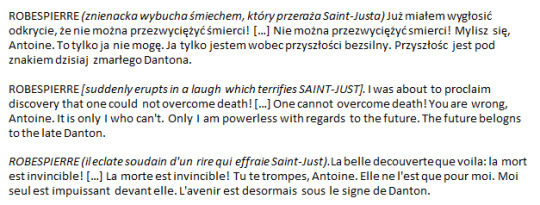
From the linguistic point of view, I find it interesting that in the original and in the French version, he is using somewhat esoteric language (the future is under the sign of Danton – to my eyes, it is a clear refereance to the Zodiac signs, something which is supposed to predestine our futures, and which is also esoteric and ritualistic; given all the hints that she was abused by her satanist father, it makes a really sad, hopeless final note on the grand scheme of things for the humanity, that we, as humans, are incapable of running away from the brute forces which will continue to rule us simply because the world is built like this – not to mention the inability to change the future or even just the fate of one's life is a staple of gnostic beliefs).
No matter what he says about it, the inability to escape from one's fate is something which we rarely associate with Robespierre, because – as much as Przybyszewska makes it clear, thet he is a genius and thus everything he does he is not only allowed to do, but must do it for the greater good – he seems a bit like a self-made man, perhaps because we see him all the time in situations which are hard and difficult, but not impossible. A much more tragic situtation of the lack of escape from his own poor choices is being presented to us through Camille.
Camille has had a chance to be continously tethered to Maxime, securing for himself relevant safety in the public life, and calmess or even happiness in his private one. Yet he breaks with Robespierre over and over again, starting even before the plot of the play. Maxime reaches out to him against his better judgement, and Camille – also against his better judgement – decides to stay loyal to Danton. He is as if glued to his leader, even though he sees him clearly for what he is. Camille is an apotheosis of a spiritual being, someone ruled by impulses, perhaps even with the best of intentions, but whose mind will never achieve gnosis, the clear vision of what is right and true. When Robespierre argues with the Committee by demanding they leave Danton (and Camille by proxy) alone, he plots against Maxime in his newspaper; when Robespierre goes to him under the cover of night, he doesn't want to see him and then throws him out; when Robespierre tries to either break him free from the prison or at the very least console him by admitting his love (I never actually knew what was his plan here), he follows the advice of his bad influences and doesn't admit him. It's as if a strange force kept him by Danton's side, and I don't think it was any normal feeling (of shame or guilt) keeping him away from Maxime. In The Last Nights of Ventose he makes it quite clear being a stronger person's lap dog would never bring him shame, but honour, thus I don't think he'd have any problem with returning to Robespierre after a long while of abuse and slander.

The relationship Camille has with Danton is another aspect of gnosticism, namely its duality. Danton is a stand-in for Maxime, which doesn't work because Danton is anti-Robespierre, his negative double (much like in some gnostic beliefs world was created and being conducted by two gods, one good and one evil). It is unclear whether Camille had any real, true potential to serve "good" Robespierre, but even if he didn't, if his friableness kept him from serving a greater purpose (which I don't know if I believe, in The Last Nights of Ventose we are presented with a very different portrayal of Camille, one who could achieve something much greater than he did if only he was by Robespierre's side at all times), serving the "evil" Danton couldn't possibly have a good outcome.
He even does return to Robespierre, for a short while, steered by emotions rather than anything else. But in this dualistic, gnostic reality, emotions have little to do, they aren't worth very much. What's more, if we focus solely on Camille, we have to admit that – as in every story, revolving around a single character – a person is in a way stuck in time. He can go about in the space his life takes, but time is more like a deity, untouchable and something you cannot pact with. For Camille, it doesn't matter how many times and at what point in time (before their fallout, during the crisis or at the last hour) Maxime asks him to break with Danton and go back to him, because time and predestined fate hold all the power of what is happening, while individuals hold none (and the aforementioned last statement of Robespierre explains right away that it is so even for the "great" individuals, who in other aspects are being held to different standards, but against time and fate they are just as powerless).
I like to think, though, that Przybyszewska has left a small postern for Camille to achieve gnosis or its more humane equivalent by drawing a symbolic parallel between two scenes, which are only made significat by their possible relating to each other, but mean next to nothing on heir own:

In the first scene, the key could have been a completely incidental choice of words/tools, after all it's a logical conclusion of the scene. There is, however, a more symbolic reading of it, as a key is of course a symbol, and a pretty easy one at that. If Camille gave Robespierre the key himself, this could be read as an end to their relationship, Camille returning the power that Maxime holds over him to Maxime's own hands. But since we only see Lucille relay the key, and we know that Lucille is also capable of influencing her husband and directing his steps (even if she says she can't; Robespierre's words, seeing as he's the genius here, are the final judgement of this), this could mean she is giving her portion of power to Maxime, whom she trusts to save her husband. And Maxime uses this one more time, when he tries to visit Camille in prison. That he fails miserably is against Camille's wishes, because Camille even in his demise only succumbs to wishes of others.
But we know he regrets this step mightily and we know it precisely because he dreams (or rather has a nightmare) about the very key he was supposed to convey to Robespierre earlier. He regrets the desire to give Maxime his power back, he regrets that by doing so in any way, shape or form he has finally given up his life. Choosing a beautiful death over an ugly, humiliating life only sounded good in his head, but in truth, he is beyond terrified and would love nothing more but to Maxime to come in again and if not save him, then at the very least – forgive him. But for that, they'd have to meet again, and he couldn't throw Maxime out. I also don't understand why both the English and French translation added the word "effortlessly" when describing his last moment with Robespierre, because make no mistake, it is very much an unnecessary addition, going against everything that he has been portrayed like so far. Their last conversation is just as much a tragic one for Camille as it is for Maxime.
Przybyszewska took great pains to paint Camille in front of our eyes as someone so weak that we find him as more of a comic relief than anything else, but in reality he is just a differing portrayal of powerlessness when faced with fate. Camille is not a comical character, but a tragic one, he is just the same as Robespierre, his other half: they both believe in their own agency, they both believe they are the ones making choices and pushing their lives forward, but it is not a coincidence that they both end up in he very same place, in a span of mere weeks.
This post would not have been born if it weren't for @patricidefan.
#@patricidefan thank you so much for talking with me about it#as i said you opened my third eye#patricidefan#Stanisława Przybyszewska#stanislawa przybyszewska#the danton case#sprawa dantona#thermidor#Maximilien Robespierre#maksymilian robespierre#Camille Desmoulins#Kamil desmoulins#gnosis#literary analysis#philosophy
21 notes
·
View notes
Text
A resolution to read the previously unread book of your favourite authors this year is all well and good, until you realise that there is a reason why you've not read those books. Because they are. Not that good.
I finished Pat of Silver Bush, but getting into Mistress Pat is a struggle. I can't get through the chapter when Tillytuck is introduced. His head looks like a marshmallow and I don't like the way he comes in and takes over a scene, which should be women having a quiet and cosy evening in the kitchen. LMM is not selling me the "he sat down and it was as if he always belong to Silver Bush". Sorry. So I have to put it aside for later.
Now for Agatha Christie. The only books that remain are Postern of Fate and Passenger to Frankfurt and I know those are bad. I actually started on Passenger but it was a slog and I gave after like, two chapters? I'll get her autobiography on audio, with memoirs and stuff like that I prefer listening anyway. I could get another of her Mary Westmacott novels, but I can't be bothered.
So fuck it, I've picked up Five Little Pigs for a re-read!
#life and times#and it ends with laziness. no surprises#reading#everything i'm reading lately is books from public domain#so not bought anything for a while#i still have £50 in my amazon the christmas gift from my work#and a long to read list#but i've wanted to re-read five little pigs anyway#mypost
1 note
·
View note